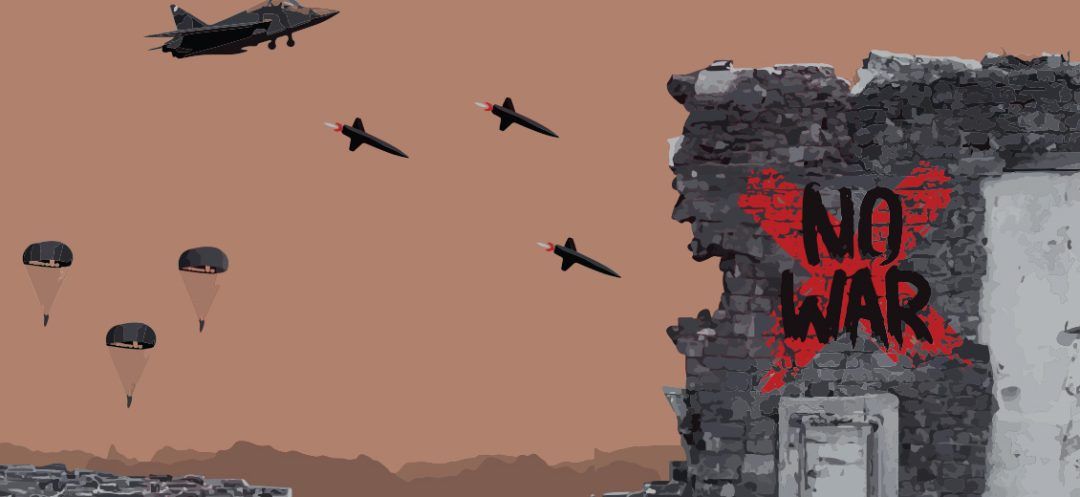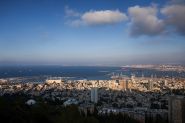- Home
- War in the Middle East
- Cutting the Gordian Knots

The ongoing wars in Gaza, South Lebanon and South-West Syria are quite perplexing since we have a hard time imagining their outcomes. What makes these concatenated cycles of violence intractable and open to various entanglements and invariable destructiveness? Aside from the centennial legacy bequeathed by the Israeli-Palestinian conflict, the problematic nature of territorial statehood in the Arab political culture, the intractability of “social protracted conflicts” owes, mainly, to their rotating instrumentalizations and pliability to power politics and ideological mystification. However, critical are the issues of State formation in the post-Ottoman imperial era. The difficulties are primarily related to the inability of the pre-State actors to adjust to the norms of territorial and constitutional statehood, negotiated conflict resolution, consensual politics and constant dependence on foreign interventions to consolidate political and ideological entrenchments.
The indisputable control of the Palestinian political scenery by the Iranian regime, far from being an accidental feature, reflects an enduring trait which characterized its politics throughout the centennial. Palestinians, who have forged their national identity against the backdrop of their conflict with pre-national Jewish community (Yishuv) and the rising Israeli nation, have failed to eradicate the nascent national community to overcome the denial of the Israeli matter of fact, and have traded their national autonomy for a calamitous pattern of cultivated dependencies.
Whereas, the Jewish pre-national constituencies (Yishuv) and the emerging State of Israel were busy building their institutions, coping with the disastrous plight of European Jewry after the Holocaust, fighting for their survival, engaging in conversation with the Arab environment at different stages, defining and redefining the nexus between jewishness and nationhood, the scope of Zionism and post-Zionism, and the norms of integration of the “Arab-Israeli” citizens (20/100 of the State of Israel), while negotiating with the various Palestinian constituents. Unfortunately, mutual distrust, extremism and cyclical violence took over and the conflict reverted back to an earlier stage of violence and absence of political horizon. The critical questions of mutual acknowledgment and moral reciprocity were at the very roots of the institutionalized political impasses and violence. The presumptions of moral righteousness and political absolutism are not quite functional from a conflict resolution standpoint.
This short historical notice accounts for the divergent political fortunes and their impact on the respective national trajectories, the damnations of a national conflict which failed to overcome the pitfalls of negationism, political nihilism and zero-sum game scenarios. International resolutions and mediations were deliberately subverted and brought down to zero as if this rich legacy has never existed. Hence, Palestinians shifted back to senseless radicalism and alternate power politics, and Israelis, notwithstanding, their political affiliations have given up on the Two State solution and so have the Palestinians.
We are witnessing a dramatic turnaround whereby the Palestinian agenda is sublated and categorically subsumed under heavily loaded regional and international power politics. The political and moral expropriation of the Palestinians by the Iranian power broker has put them with the Lebanese, the Syrians and the Yemenis on a destructive political course, whereby violence and open-ended conflicts have undermined the chances of political stability in their respective countries. Paradoxically enough, Iranians have forced their agenda on the Islamic conference, at a time when its members fully realize its ambivalence and “perverse effects.” Israel is subsequently the only regional player able to check the Iranian power drive and balance the pendulum in a highly volatile region.
The double assassination of the Iranian mandated operators is an open challenge to the Iranian power politics and to the imposed strategic equation. One wonders how the US led-negotiations are likely to change or amend the course of Iranian power politics engaging in subversion politics, and converting geopolitical platforms into levers of political destabilization and unrestrained civil wars. The very cooptation of Yahya Sinwar as the heir to Ismail Haniyeh is quite indicative of the overpowering influence of the Iranian regime and the total subservience of Palestinian politics. We have a hard time guessing how Palestinian priorities, under the current circumstances, are likely to supplant Iranian strategic priorities and the Iranian regime survival imperatives.
Axiomatically, the survival of the delegitimized Iranian regime depends on its ability to destabilize the regional order, to militarize its nuclear energy, to institutionalize chaos and to widen the expanse of security and political wastelands. Palestinians are once again victims of their strategic blindness, pliability to power politics and inability to build a coherent and consensual platform to engage their Israeli nemesis. The latest Palestinian meeting summoned by Beijing has proven the flimsiness and the inexpediency of Chinese diplomacy. Palestinians are more disunited than ever and dramatically distracted away from their political priorities, and Israelis are, by and large, quite apprehensive about the outcomes of a negotiated solution. Sadly enough, the late spate of military and political events sends us back to the dark realities of the Middle East, adrift and with no moral compasses and strategic anchors.
Read more



Comments